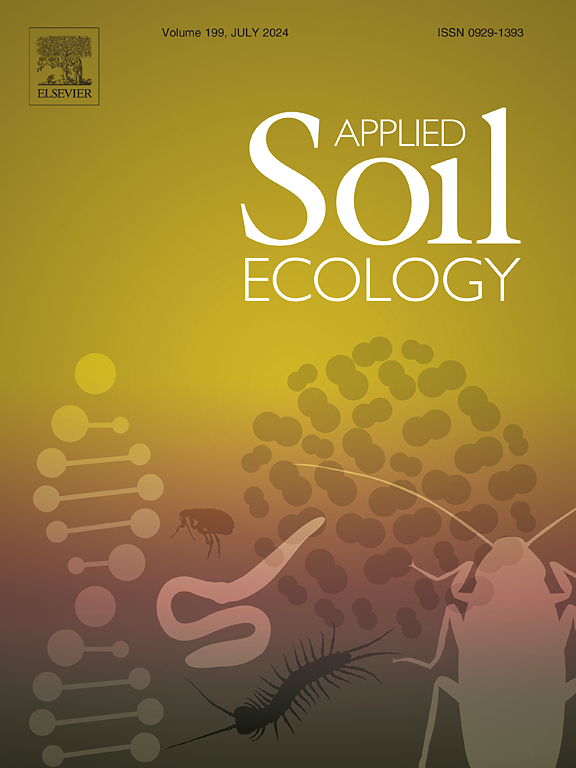Earthworms multi-biomarker approach for ecotoxicological assessment of soils irrigated with reused treated wastewater
IF 4.8
2区 农林科学
Q1 SOIL SCIENCE
引用次数: 0
Abstract
Water scarcity for crop production and the need to ensure environmental protection lead to the reuse of treated wastewater for irrigation. However, the use of wastewater raises concerns about its quality and related toxicological and ecotoxicological risks. Ecotoxicity tests on soil organisms can offer an integrated assessment of the environmental adverse effects of bioavailable toxic substances in wastewater for irrigation. This work aims to investigate the assessment of ecotoxicity in agricultural soils irrigated with treated wastewater through a multi-biomarker approach in earthworms. In particular, molecular and cellular biomarkers (lysosomal membrane stability, glutathione peroxidase, glutathione reductase, GSH/GSSG, metallothionein, acethylcholinesterase) were measured, combined with acute and chronic toxicity tests on Eisenia fetida exposed to soil samples from agricultural fields irrigated with treated wastewater. Three experimental fields in Apulia, Italy, were irrigated with varying types of treated wastewater. Acute toxicity tests on Eisenia fetida exposed to the irrigated soils showed no significant mortality in any soils, while chronic toxicity was observed in fields irrigated with secondary-treated wastewater, but not in fields irrigated with tertiary-treated wastewater. Biomarkers indicated reduced lysosomal membrane stability, increased oxidative stress, and reduced acetylcholinesterase activity in worms exposed to secondary-treated wastewater. The results showed how the combined use of toxicity assays and biomarker analyses in soil bioindicator organisms allows the toxicity of soils irrigated with treated wastewater to be assessed, in order to provide an integrated measure of chemical pollutants bioavailable and their biological effects.

求助全文
约1分钟内获得全文
求助全文
来源期刊

Applied Soil Ecology
农林科学-土壤科学
CiteScore
9.70
自引率
4.20%
发文量
363
审稿时长
5.3 months
期刊介绍:
Applied Soil Ecology addresses the role of soil organisms and their interactions in relation to: sustainability and productivity, nutrient cycling and other soil processes, the maintenance of soil functions, the impact of human activities on soil ecosystems and bio(techno)logical control of soil-inhabiting pests, diseases and weeds.
 求助内容:
求助内容: 应助结果提醒方式:
应助结果提醒方式:


